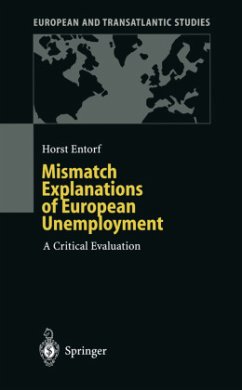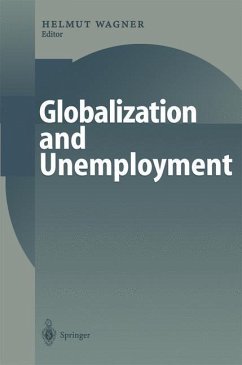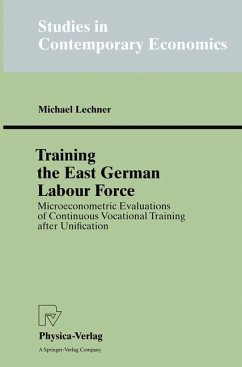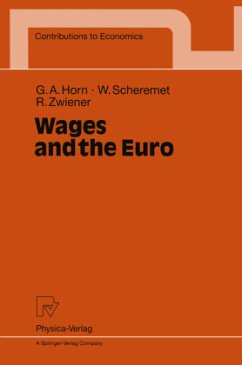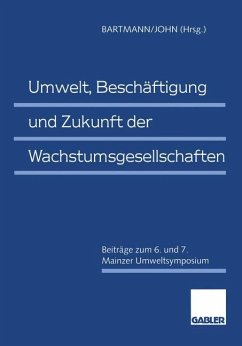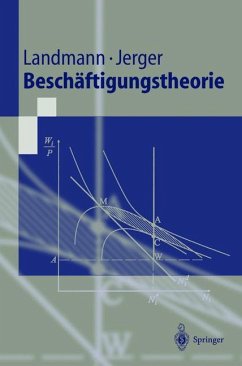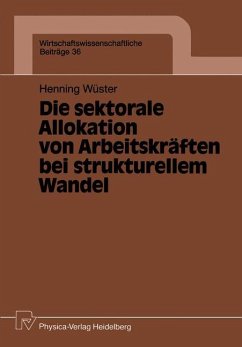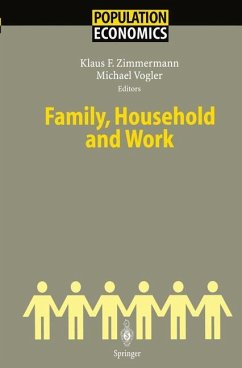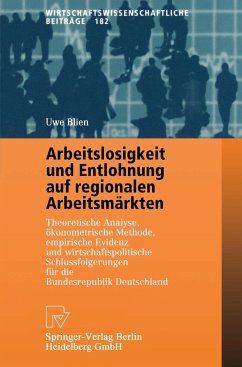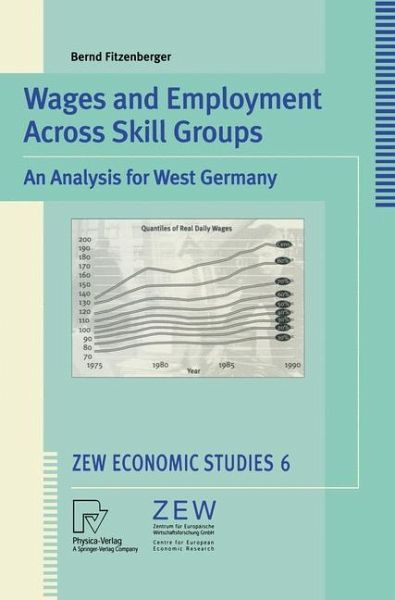
Wages and Employment Across Skill Groups
An Analysis for West Germany

PAYBACK Punkte
39 °P sammeln!
For some time, it has been debated whether a lack of wage flexibility is at the roots of the high and persistent unemployment in West Germany. In the presence of a skill bias in labor demand, which increases the relative de mand for more highly skilled labor over time, there only seems to exist the choice between higher wage inequality or higher unemployment rates. This study scrutinizes whether and in what way this line of thought is consis tent with empirical findings for West Germany. The analysis ranges from extensive descriptive evidence on wage trends to the estimation of a struc tural m...
For some time, it has been debated whether a lack of wage flexibility is at the roots of the high and persistent unemployment in West Germany. In the presence of a skill bias in labor demand, which increases the relative de mand for more highly skilled labor over time, there only seems to exist the choice between higher wage inequality or higher unemployment rates. This study scrutinizes whether and in what way this line of thought is consis tent with empirical findings for West Germany. The analysis ranges from extensive descriptive evidence on wage trends to the estimation of a struc tural model of wage bargaining. As the most important database, I use the IAB-Beschiiftigtenstichprobe from 1975 to 1990. This study was accepted as a Habilitation thesis by the Department of Economics and Statistics of the University of Konstanz in October 1998. The only major change relates to appendix B on the block bootstrap procedure now summarizing the main aspects of the method. I am very grateful to my advisor Prof. Dr. Wolfgang Franz for his support, encouragement, and inspiration. From 1993 to 1997, he ran the Center for International Labor Economics at the University of Konstanz in such a way that it provided a fruitful environment for empirical research in labor economics. I am also indebted to Prof. Dr. Winfried Pohlmeier and to Prof. Dr. Gerd Ronning for undertaking the task to evaluate my Habilitation thesis.





